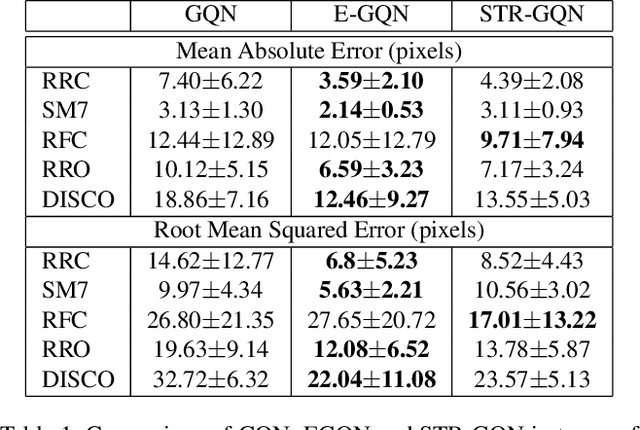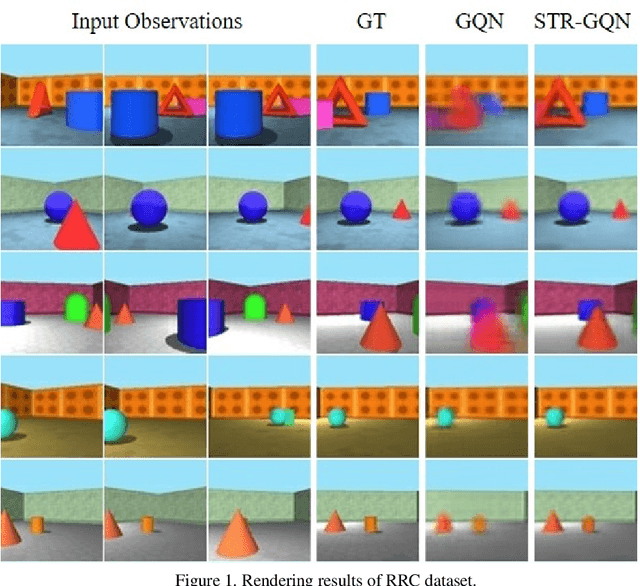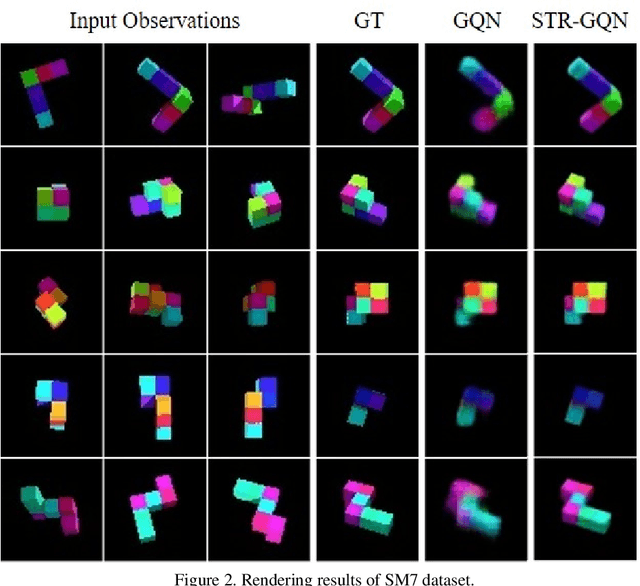STR-GQN: Scene Representation and Rendering for Unknown Cameras Based on Spatial Transformation Routing
Paper and Code
Aug 06, 2021



Geometry-aware modules are widely applied in recent deep learning architectures for scene representation and rendering. However, these modules require intrinsic camera information that might not be obtained accurately. In this paper, we propose a Spatial Transformation Routing (STR) mechanism to model the spatial properties without applying any geometric prior. The STR mechanism treats the spatial transformation as the message passing process, and the relation between the view poses and the routing weights is modeled by an end-to-end trainable neural network. Besides, an Occupancy Concept Mapping (OCM) framework is proposed to provide explainable rationals for scene-fusion processes. We conducted experiments on several datasets and show that the proposed STR mechanism improves the performance of the Generative Query Network (GQN). The visualization results reveal that the routing process can pass the observed information from one location of some view to the associated location in the other view, which demonstrates the advantage of the proposed model in terms of spatial cognition.
 Add to Chrome
Add to Chrome Add to Firefox
Add to Firefox Add to Edge
Add to Edge